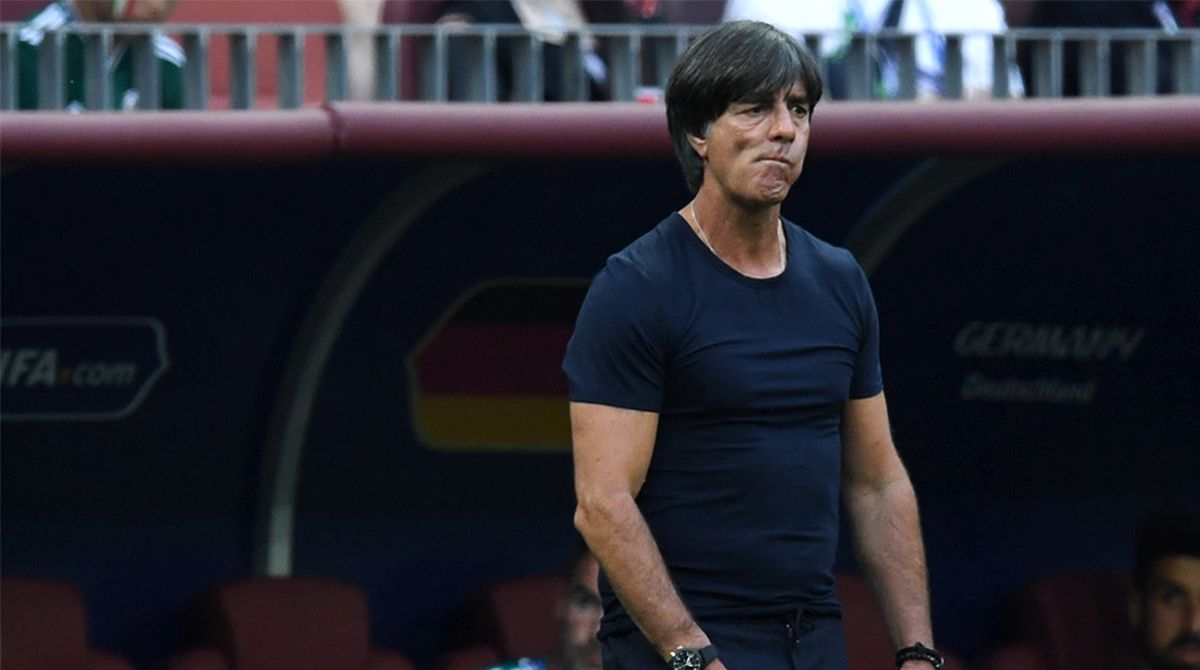Joachim Loew is facing problems galore after Germany’s early World Cup exit. While still in charge of the 2014 world champions, the 57-year-old is the subject of heated debates among fans and media.
In advance of the vital home and away games in the newly-formed Nations League against the 2018 World Cup winners France and the Netherlands, Loew will soon have to present a convincing strategy as to how he intends to lead the German national team back to success, reports Xinhua news agency.
Advertisement
Rumours say that the outcome of both duels could affect the coach’s future despite having a contract until 2020. To make up for the poor World Cup showing, Loew not only needs convincing results but he has to solve a new problem in German football.
As one of the most successful football powers, Germany is facing a striker problem after having won four World Cups (1954, 1974, 1990 and 2014).
Germany no longer seems to be able to rely on top-class strikers like Gerd Mueller, Juergen Klinsmann, Rudi Voeller and 2014 World Champion Miroslav Klose.
Looking at the German Bundesliga, the striker problem is becoming evident as the task of spearheading the leading clubs in the last few years has been occupied by foreign players such as Polish Robert Lewandowski (Bayern Munich).
Also, Mario Gomez (VfB Stuttgart), the last remaining center forward, has announced his retirement from the national team.
After the recent tournament in Russia, Loew admitted modern football doesn’t work without a key striker doing the difficult job up front trying to gain space for midfielders and converting crosses or set-pieces.
Now German football is looking for suitable candidates to succeed Klose and Gomez to support the growing number of dynamic dribblers, football is developing in midfield and along the flanks.
While Loew is working on rebooting the national team, the U-21 coach Stefan Kuntz is demanding greater effort to produce young strikers. The former international striker said German football needs to concentrate imparting traditional values to its forwards.
It is apparent that fans of the national team will have to get used to new names yet to prove heir quality.
Next to the established strikers such as Leroy Sane (Manchester City), Serge Gnabry, Thomas Mueller (Bayern) and Timo Werner (RB Leipzig), all of whom are far from being center forwards, candidates such as Nils Petersen (SC Freiburg), Mark Uth (FC Schalke 04), Maximillian Philipp (Borussia Dortmund), Niclas Fuellkrug (Hannover 96), Davie Selke (Hertha BSC) and Kevin Volland (Bayer Leverkusen) will have a chance to stake their claim. Besides Volland (10 caps), Loew has to select out of a bunch of newcomers.
Recently the national tabloid “Bild” demanded Loew should talk to Sandro Wagner (Bayern Munich) who was left out of the 2018 World Cup squad. Wagner retired from the national team accusing Loew of being prejudiced when it comes to players with a strong opinion.
Wagner’s return to the national team seems out of the question as Loew doesn’t seem to be the type of coach to forgive critics.
The coach is expected to present his rescue plan on as soon as August 24 when the 2018 German Champion plays the opening game of the 2018-19 Bundesliga season against TSG Hoffenheim.
Former German international Oliver Kahn said German football has to find answers, and quickly.
“The national team is to a large extent a reflection of the performances in the national league,” Kahn commented.
He and several other pundits are demanding that clubs turn to young talents soon.
As far as Joachim Loew is concerned, time is running out. The German national coach can’t wait for talents to develop. He has to find quick answers.











